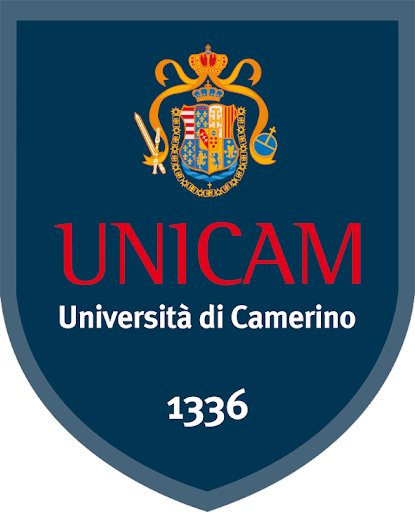Workshops
All accepted workshop papers, as well as Doctoral Consortium papers, will be published in a joint CEUR-WS proceedings volume using the CEUR-ART styles. The uniform style for the proceedings is 1-column. The CEUR-ART styles can be found in the https://ceur-ws.org/Vol-XXX/CEURART.zip file.
Please find below details on each individual workshop and their submission schedule. Details on the Doctoral Consortium are available here.
3rd International Workshop on Blockchain for Trusted Data Sharing (B4TDS 2023)
Workshop Chairs and Organizers
- Alessandro Marcelletti, University of Camerino, Italy
- Felix Härer, University of Fribourg, Switzerland
Link to the workshop's homepage: https://pros.unicam.it/B4TDS2023/
13th Workshop on Business and IT Alignment (BITA 2023)
A contemporary challenge for enterprises is to keep up with the pace of changing business demands imposed on them. There is today an obvious demand for continuous improvement and alignment in enterprises. BITA is many times manifested through the transition of taking an enterprise from one state (AS-IS) into another improved state (TO-BE). Recent development within digitalization, digital transformation, smart products (value proposal) and smart operations (value adding) has brought new dimensions to BITA where smart business ecosystems is an emerging trend. A continuous BITA challenge is to move beyond a limited focus on one tradition or technology. There is a need to be able to deal with multi-dimensions of the enterprise in order to create alignment between business and IT. Examples of such dimensions are organizational structures, strategies, architectures, business models, work practices, processes, and IS/IT structures.
Workshop Chairs and Organizers
- Ulf Seigerroth (Chair)
- Kurt Sandkuhl (Co-Chair)
Link to the workshop's homepage: https://www.wirtschaftsinformatik.uni-rostock.de/forschung/veranstaltungen/selbst-organisierte-workshops/bita-2023/
8th Workshop on Managed Complexity (ManComp 2023)
Workshop Chairs and Organizers
- Peter Forbrig, University of Rostock, Germany
- Marite Kirikova, Riga Technical University, Latvia
- Charles Moller, Aarhus University, Denmark
Link to the workshop's homepage: https://wwwswt.informatik.uni-rostock.de/ManComp2023/
1st Workshop on Scaled Agile Development of Complex Software Projects
At the same time one of the most relevant frameworks to develop business information systems is Agile. So, this workshop will help to build necessary competences to improve BIS management and delivery.
The workshop goals are (based on the provided business specification (“Article Management System”)):
- to get basic understanding of SAFe
- to practice with mandatory SAFe ceremonies as Program Increment planning (PI planning), Scrum of Scrums, and others.
- practicing with creating an Agile team, planning the Iterations, backlog refinement and grooming, etc.
- practicing with scrum (Kanban) ways of working with all mandatory ceremonies, as daily; sprint planning, review and retrospective.
Workshop Chairs and Organizers
- Janis Grabis, professor, Riga Technical University
- Bohdan Haidabrus, PhD, Riga Technical University
Link to the workshop's homepage: https://isapro.rtu.lv/
1st Workshop on Domain-specific Modeling Methods and Tools - OMiLAB Nodes experience & knowledge exchange (OMiLAB-KNOW)
Discussions will be facilitated by the current activities and experience of nodes in the OMiLAB network and community of practice. Results from network members typically include modeling tools, modeling method components or extensions, model-driven artifacts, applications of domain-specific modeling, empirical evaluation strategies. OMiLAB nodes are invited to share such results, visions potentially leading to such results or project-based experiences where modeling methods played an enabling role. Both empirical experimentation and design-oriented research are welcome. The integration of conceptual modeling topics in curricular contents and associated teaching experiences are also typical concerns to be discussed in the workshop's scope.
The workshop also welcomes researchers and educators from outside the OMiLAB network who are active in the fields of knowledge engineering, enterprise modeling and domain-specific modeling, having a general interest in the value of conceptual models and the diversity of modeling purposes. Knowledge exchanges with other modeling-centric communities are expected to drive debates and positions with diverse perspectives.
Various stages of research progress can be reported in the workshop submissions - from (short) position and vision papers to (full) research papers and experience reports.
Workshop Chairs and Organizers
- Dr. Anne Gutschmidt, University of Rostock, Germany (anne.gutschmidt@uni-rostock.de)
- Dr. Ana-Maria Ghiran, Babeș-Bolyai University, Romania (anamaria.ghiran@econ.ubbcluj.ro)
Link to the workshop's homepage: https://bir2023-ws.omilab.org/
